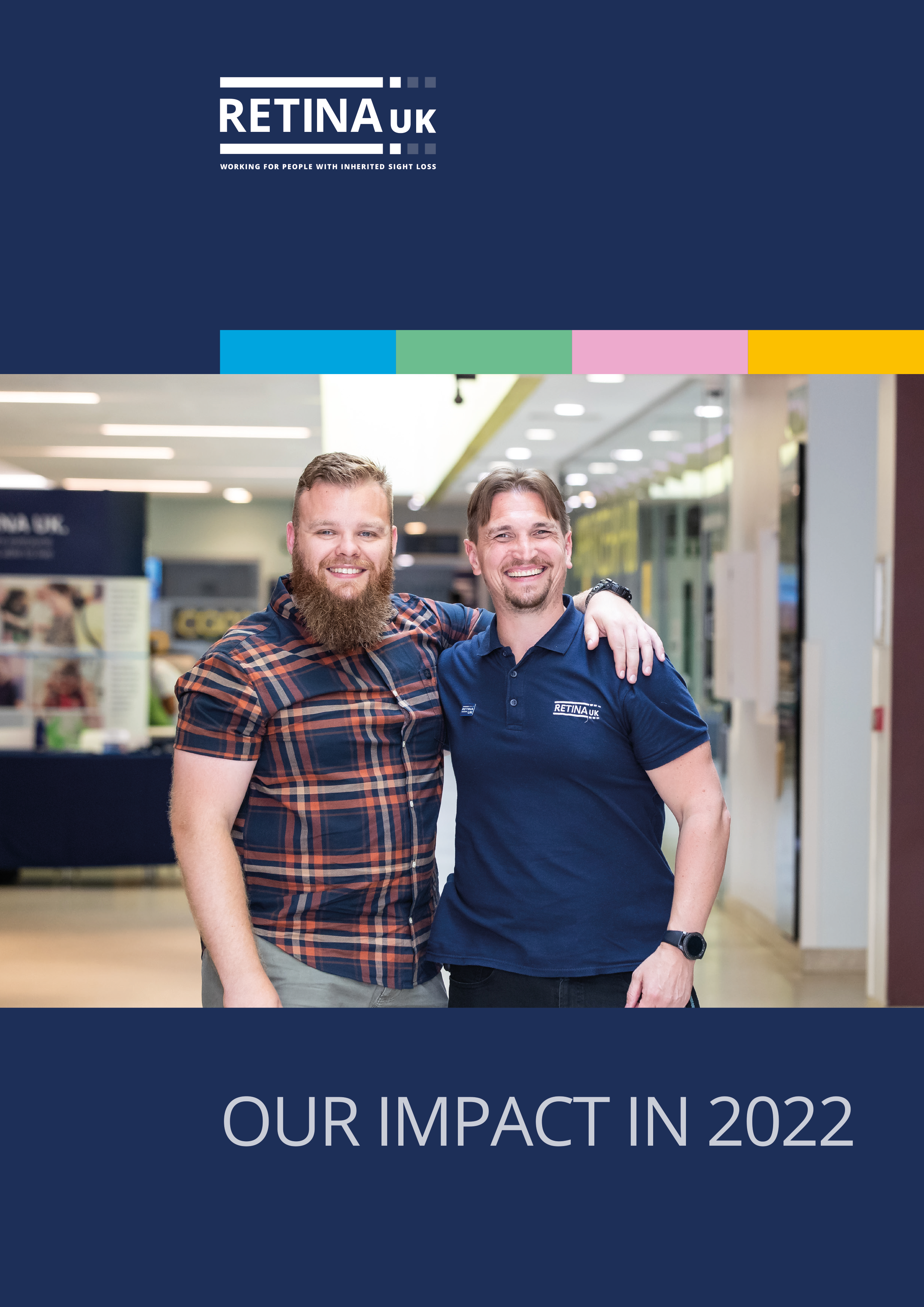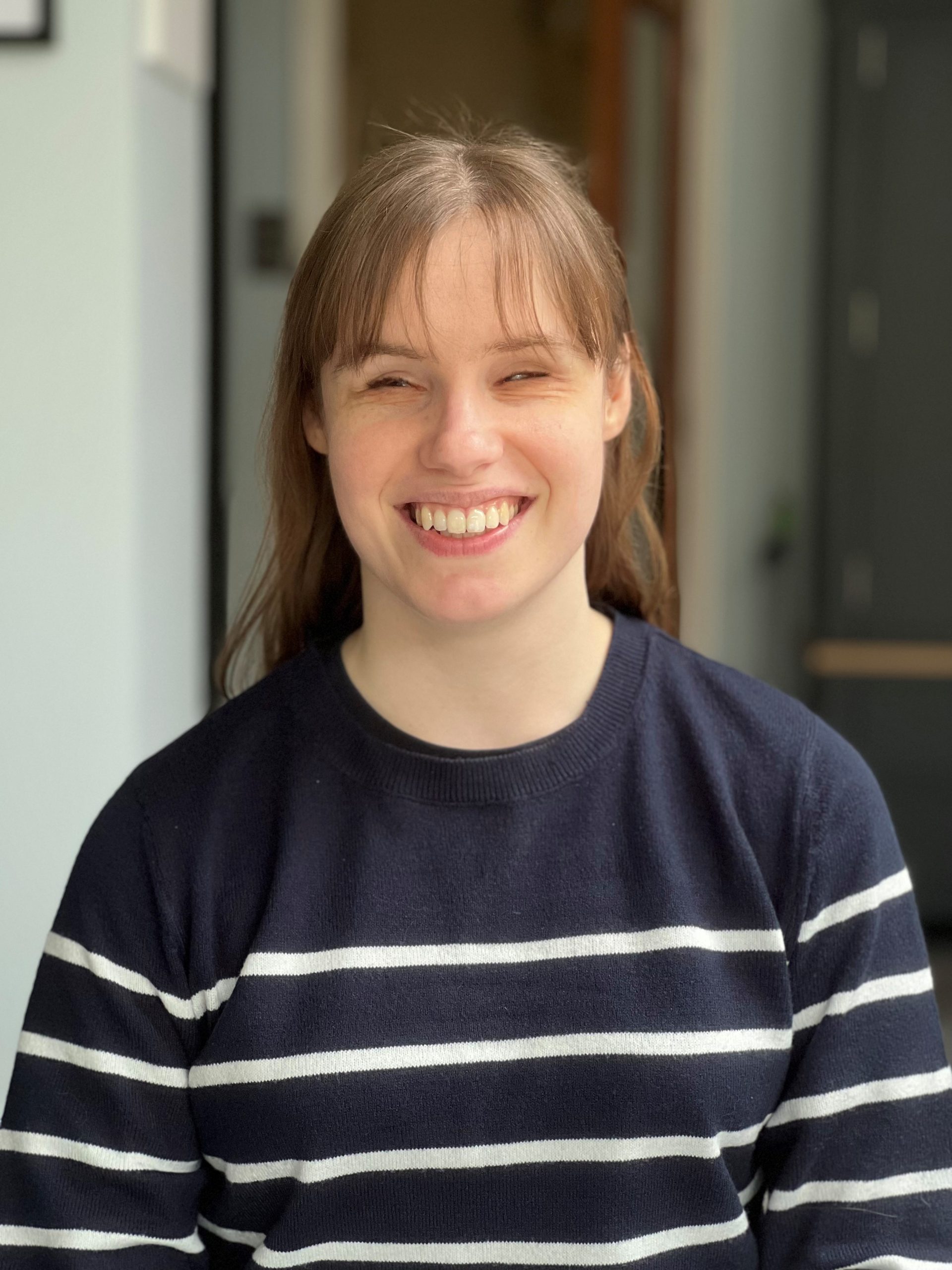
Impact Report 2022
The difference we made in 2022
Search results

The difference we made in 2022
Whether you are a professional looking for practical information for yourself, or practical or emotional support for your clients, online, by phone or face-to-face, we're here to help. All of our services are free to access and offered in a range of accessible formats.

Our West Yorkshire peer support group recently welcomed The Blind Poet, Dave Steele, who is living with retinitis pigmentosa, to their meeting. He talks candidly about his diagnosis, his poetry and his optimistic mindset.

Have you ever really thought about how you use your senses after sight loss? Does your sense of humour relate to your ability to tell a joke or hear a joke? Find the answers to these questions and more in our ‘Blindingly Chatty’ podcast from Laura and Mark.
A new Retina UK podcast that introduces our new chair of trustees, Kathy Evans.
We sat down to discuss all about who Retina UK are.

The following questions are often asked by people contacting Retina UK.

Cataracts occur fairly frequently and at a relatively early age within the Retina UK community of people with inherited retinal conditions. A question that comes up over and over again is whether or not to have cataract surgery.
With a significant proportion of inherited retinal conditions being caused by unidentified genetic faults, and many families unable to get clear results from genetic tests in clinic, the project set out to solve previously undiagnosable cases and discover more of the genes and mutations that are associated with sight loss.

A chat with our founder, Lynda Cantor MBE and our (former) Head of Fundraising, Deborah Laing.